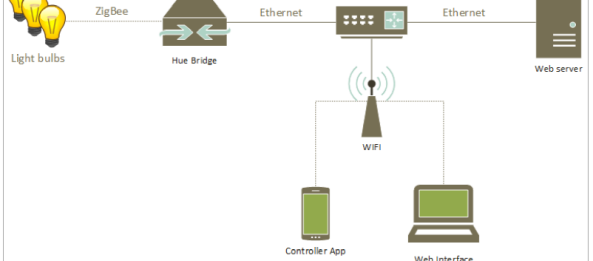Master thesis by Jørgen Falch Waarsøe, December 2016
Abstract – The library at DTU has a vision of improving the indoor climate by making the library more intelligent and by turning the entire library into a living lab. Researchers and students should be able to use the living lab to conduct ex-periments that can lead to a improved indoor climate in the library. The first phase in turning the library into a living lab involves removing all the lamps and replacing them with LEDs. While replacing the lamps the library will also install sensors that can be used as a part of the living lab. The DTU library is now looking for ideas to how the new lighting system and sensors can be an integrated part of the living lab.
This thesis is about developing a software system, which can help the living lab improve to the indoor climate, by taking advantage of the new LED lamps in the library. The system developed consists of an automation system and a smartphone app. The automation system can be configured by users of the living lab users to take input from sensors and adjust the lighting accordingly. The smartphone app is used by the library guests to adjust the lighting decided by the automation system.
The tests made showed that the software is working as intended and that it can be a useful tool for conducting experiments. However the initial tests show that an automated lighting system can be very distracting. Therefore it is important that users can override the automation system.
Supervisor: (Al)Fred Heller, DTU Civil Engineering, Denmark.
The thesis download version: thesis_s103801
